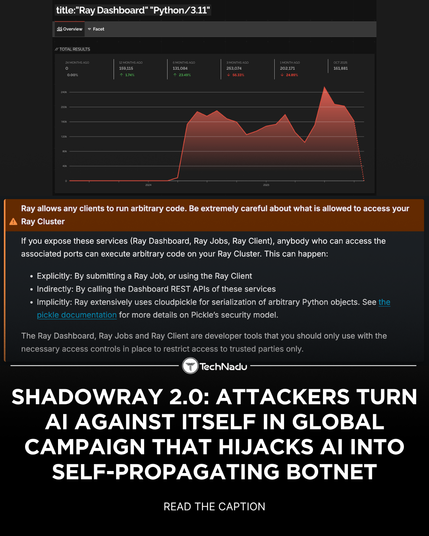ShadowRay 2.0 demonstrates how attackers are now leveraging AI-generated tooling to exploit exposed Ray clusters and create a globally distributed botnet.
Highlights:
• CVE-2023-48022 exploited across thousands of Ray servers
• LLM-generated scripts tailored to victim environments
• Region-aware updates via GitLab + GitHub
• Hidden GPU mining (A100 clusters)
• Competing cryptominers battling for compute
Thoughts on the broader implications for AI security?
Boost, reply, and follow @technadu for more deep-dive threat research.
#Infosec #CyberSecurity #ShadowRay #AIThreats #RayFramework #Botnet #ThreatHunting #CloudSecurity

